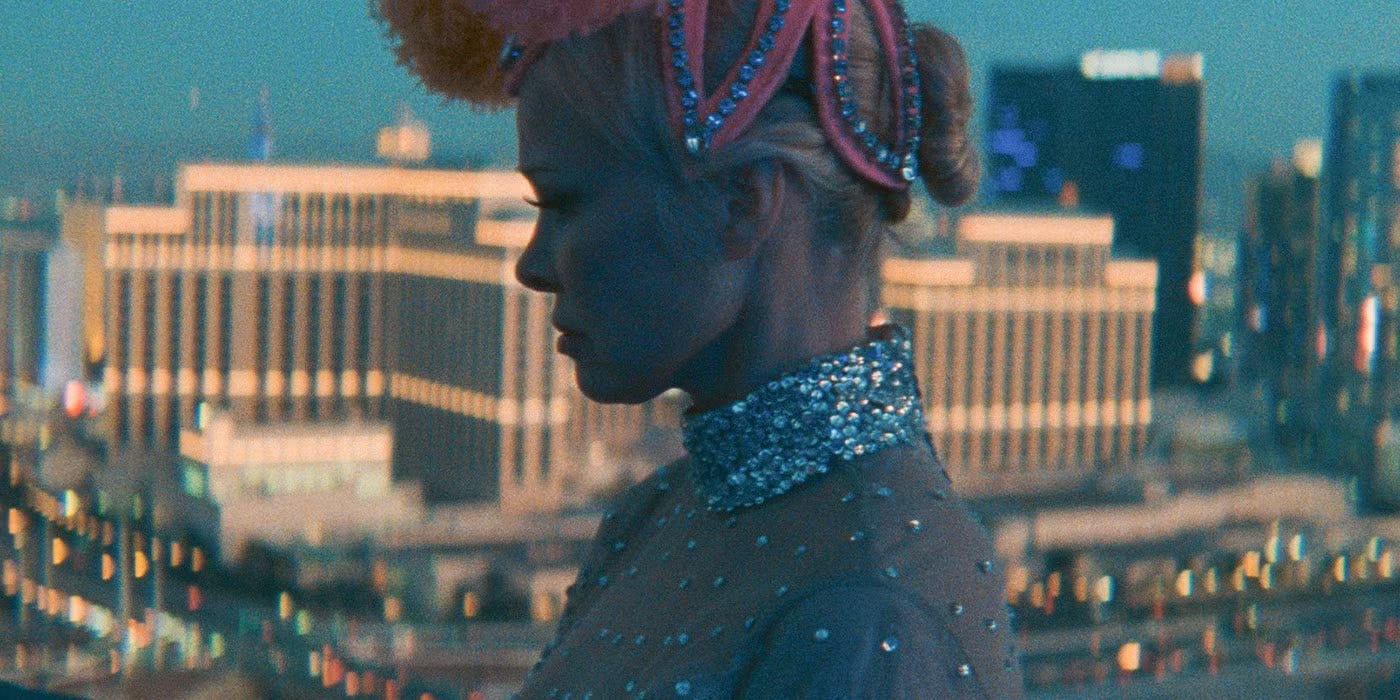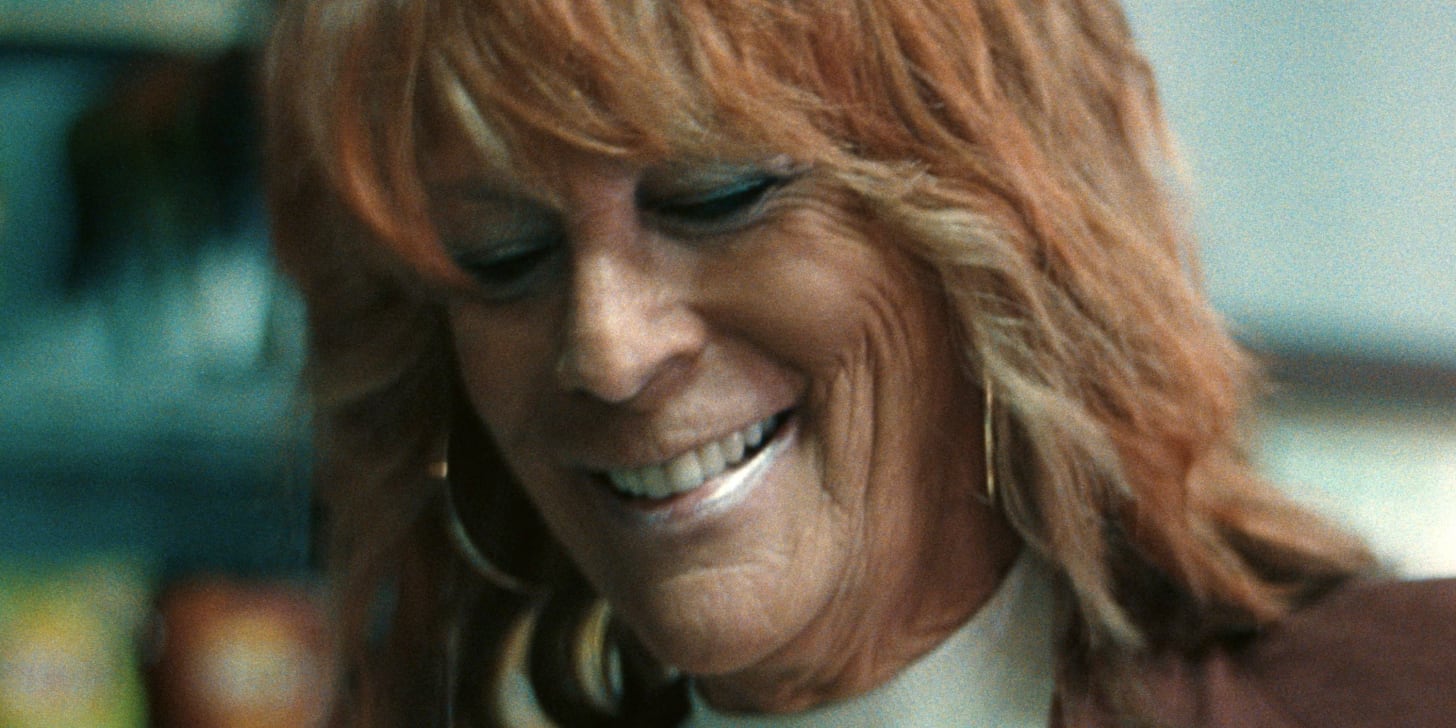Pamela Anderson doesn’t quite shine as bright as others across the critique board are suggesting in her big-screen revival. The return of a star can’t salvage mediocre filmmaking and a weak screenplay. The Last Showgirl presents itself as a painful bore-fest for most of its duration. However, there is some slight magic to this tale, albeit if it reveals itself all too late.
We start this story seeing Shelly (Anderson), a middle-aged, near-retirement showgirl prepare backstage surrounded by younger counterparts. Our eyes don’t have access to the performance but are only granted exposure to the before and after happenings in the dressing room. You wonder why we’re being concealed from sights that we feel we should have access to. However, the reason for this becomes clear if you are patient enough to see it through to the film's third act.
What we are clear of in the beginning however is that Shelly doesn’t have much of a life. Outside of work, she spends her time in the company of her manager who also happens to be her ex, as well as Annette (Jamie Lee Curtis), a friend who always has a drink in her hand yet evokes the same impression that she too has no reason to worry about spending the passing of time in the shallow.
There’s not much on offer to entice our attention with. So far we’re presented with what appears to be a sad portrait of a middle-aged woman, surrounded by equally miserable individuals who cling to the excitement of their youth but struggle to find any spark, as deep within they conclude there is no revival of the lifestyle that offered them ecstasy earlier in life.
Later on, Shelly finds out the show she has performed for thirty decades is drawing to a close, yet even this revelation isn’t enough to pull you in. Things start to perk up ever so slightly when Shelley’s daughter enters the scene. The mother and daughter relationship is broken but it's not clear yet why. However, it's the only source of intrigue that the story has offered us thus far.
After enduring an hour’s worth of boredom, the remaining duration introduces us to something that's finally worthy of our attention. The Last Showgirl reveals itself to be a story of deep-seated pain, an individual's confrontation with the uncomfortable truth of reality following decades of residing within a delusion. However, this satisfaction doesn’t redeem the journey we’ve encountered. While the introduction of pain can significantly enhance mediocre journeys such as Anora, The Last Showgirl doesn’t match the significant punch Sean Baker and Mikey Madison delivered.
What’s left behind is a mediocre tale that could have been so much more interesting, if only the screenplay had been worked on more, and if the director hadn’t conducted a piece that was reminiscent of a final-year student’s graduation piece in film school. However, it’s a very fitting piece in the dying era of modern cinema, where we’re offered works that play it far too safe, presenting its intentions with soft care. But ultimately what this era suffers with the most is complacency among filmmakers, knowing they can get away with delivering works to an audience that's built a reputation of timidity, sensitivity and worst of all, a complete ignorance of the purpose of art. Works like The Last Showgirl are a fine reminder of why this stale movement should face an immediate death in order to reignite engagement with the art form.
Out in UK cinemas now



